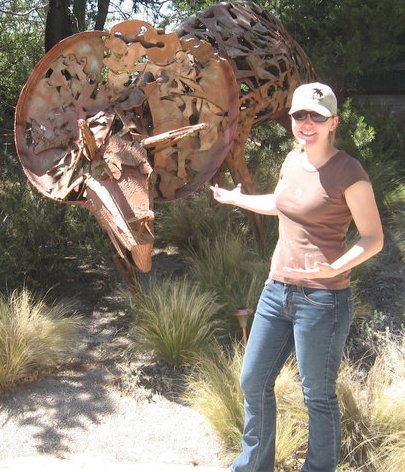I apologize for the hiatus, I've had some personal stuff going on and an existential crisis that is still looming over me. But I'll leave that for another post once I have time to process what I've been going through. For now I want to talk about my first experience as a reviewer.
Over spring break I received an email from a fairly big name journal in which I was asked to peer review a submission. How I came to get this email became clear once I saw the name of the editor that selected me as a reviewer: it was my adviser. Advisers often have their graduate students review papers they themselves are selected for, mostly to give the student experience doing something that is important to the scientific publication process, but also in part (I suspect) to clear things off their own desks. This request from Felisa was slightly different since I was directly asked as a primary reviewer.
The most amusing part of the email was that it was addressed to "Dr. Pardi". Cart before the horse.
For those who didn't know this already, the peer review process involves sending out manuscripts to other people in the scientific community for critique before publication. Reviewers identify weaknesses in the science or analyses of a paper, and the authors receive these comments. Reviewers can request that additional analyses be made, or if a paper is really bad they can indicate that they feel the paper shouldn't be published at all. In summary, it is quality control that the scientific community has embraced as a whole. It can, unfortunately, be a painful process for many involved.
I can't go into details about the paper I received, but I'm kind of nervous about being the person who is judging someone else's work. Almost everyone I know has gotten nasty reviews back on a grant or a paper before. Reviewers can be brutal, unnecessarily so. They can also give away their own ignorance by making irrelevant or stupid criticisms when they aren't necessarily an expert in the topic they are reviewing. I don't want to be either of these kinds of reviewers, and it is that second category that I am particularly wary of falling into.
Having said all this, I'm going to try to do this one on my own, at least initially. It turns out that I do know a bit about the subject matter, enough to refer Felisa to other people who would also make good reviewers if she needed anyone else. I have until April 10th the get this done, and my goal is to get it done early and do it right without being a jerk or sounding like a moron.
14 hours ago


Dear Mel,
ReplyDeleteI remember this moment well, "Oh rats, someone needs me to know much more than I actually do..." It is actually easier than it seems.
I won't say what I did right the first time round (I actually need to find the guy at a meeting and buy him a beer or three for review overkill on my part), but you don;'t need to dive into every detail, only the ones you know anything about. It's OK to tell the Editor that you don't know very much about xx% of the paper, and you will only deal with the (100-xx%) that you actually know anything about.
Don't get bogged down in copy-editing, especially for non-native speaker first authors. If there is a native speaker anywhere on the author list, it is their responsibility (IMHO) to do grammar/spelling. If there are no native speakers and the grammar is atrocious, there are agencies that can check this sort of thing for a modest fee. (I had a friend who did this for a living for a few months between post-docs). A few tips about sentence structure do help many authors, even native speakers though, but keep them general. "This + verb..." is a particular bugbear of mine. "This + noun + verb" however is fine.
Do be as specific as you can about what you think is wrong about the paper, either method or conclusions or not connecting the dots, or colour schemes in figures or whatever. Don't worry about hurting their feelings, it is possible to be very specific about shortcomings without actually being hurtful, and not that difficult to be supportive in saying effectively 'you're 60% of the way there...' Line numbers in reviews really help, both in explaining exactly what you have issues with (e.g. "lines 318-320: This premise presupposes that xxx...". Don't be afraid to say 'While I don't actually know very much about this particular aspect of the paper, this section could be written more clearly for the benefit of the general reader".
Remember that you should spend only an afternoon or so on this. It does always takes longer the first time around. I spent several days on my first review. Don't.
Oh yes, there was a really good EOS piece about a year ago about how to write a review. Check it out. I can't get the link up now, but let me know if you can't find it, I have a paper copy somewhere... Some point in 2011. It really helped me in structuring the letter to author and to editor.
Good luck
Sam